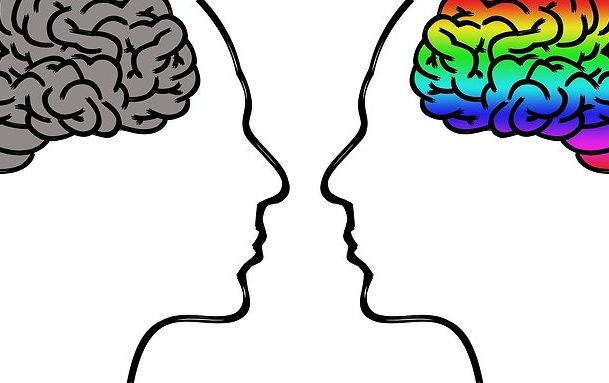Do you struggle with anxiety or panic attacks?
Does it sometimes feel uncontrollable?
Does anxiety spoil your life?
Understanding anxiety helps. If you suffer from anxiety or panic attacks, you are not alone. According to anxiety UK, 1 in 6 people suffer from anxiety and 1 in 10 people have a debilitating anxiety disorder.
Anxiety can be seen as a normal and useful emotion designed as a warning to protect us from danger. It can also be seen as a focusing mechanism to pay attention to what’s going on around us. People usually associate anxiety as a negative state to be in. It can manifest as a gut feeling, a sense that something is wrong, a feeling that we need to get away or run from a situation.
Fight Flight or FREEZE
Faced with a real threat to survival, stress hormones kick in and take over, so we can fight back or run away from danger. Unfortunately, sometimes the result is sheer panic as the body freezes and the mind is flooded with thoughts of disaster.
A normal amount of anxiety is a helpful emotion as it can focus your mind and help you to prepare for events ahead as well as improving your performance, just as an actor about to go on stage may feel the sensation of nerves as he/she gets ready to perform in front of an audience. Then, once the actor is there on stage, the “part” takes over and the actor forgets all about feeling nervous. In this case, anxiety has been used as a primer and it has done its job effectively. Most famous actors report feeling anxiety before performing.
Understanding anxiety helps us to deal with it more effectively
Anxiety is a conditioned response, it is activated before we know it, triggering an unconscious biological response that manifests in the body when there is perceived danger – physical, psychological or emotional. It can be triggered by thoughts, memories, worries, sub-conscious beliefs and/or past experiences or something in the environment.
The first time you experience an anxiety or panic attack, it may be very frightening and some people think they are having a heart attack. Many people go to hospital thinking the worst but are reassured it’s anxiety. Even though it’s scary, no-one has ever died as a result of anxiety.
Anxiety can spoil your life in a number of ways and you might be familiar with some of these:
- worrying a lot
- a sense of dread that doesn’t make sense
- a pounding heart
- irregular breathing or shortness of breath
- a tight nervous feeling in the pit of your stomach
- feeling sick or getting sick
- weakness or jelly legs
- can’t think straight
- tunnel vision
- a desire to run away
- wanting to avoid something
- fearing the next anxiety attack
These are common symptoms of anxiety that are completely natural and are triggered by the part of your brain responsible for survival.
If anxiety becomes severe and intense in a normal day, it is no longer useful, it reduces the quality and enjoyment of life. At this point the anxiety has become disproportionate. If you feel a lot more anxious than another person would in the same circumstances you may be suffering from an anxiety disorder.
Phobias, Obsessive Compulsive Disorder and Panic Attacks all have anxiety symptoms at their core
Anxiety is a bit like the wind, you can’t see it but you can feel the effects of it.
It is created in the brain and it has an effect on your entire system.
Anxiety is not your fault. It can happen to anyone.
Our programme teaches you how to take control of anxiety so it doesn’t control you.
The Brain Holds The Key
We use the latest techniques in neuro-psychotherapy to reprogramme your mind for success, removing or significantly reducing the symptoms of anxiety and building your self-confidence. We work with the early part of the brain, where anxiety is created. Our techniques work from the inside out.
You will also learn:
- The neuroscience behind anxiety and how to control it
- Specific skills and techniques that disable anxiety
- How to stop negative thinking patterns
- What to do if you are under pressure
- How to manage stress
- Physical relaxation
- Mental calmness
- Emotional resilience
- How to find inner peace
This empowering programme runs over a number of weeks, includes support audios and exercises to reinforce the work we do in the session.
"I'm not afraid of storms for I'm learning how to sail my ship."
Louisa May Alcott (1868)
When YOU KNOW YOU ARE READY TO CHANGE, the desire to change is greater than the desire to stay the same.
Anxious about being anxious?
Often, the fear of having an anxiety attack brings on even more anxiety and so it becomes a vicious circle. This is called ANXIETY EXPECTANCY . It's a fear of experiencing fear.
We teach you the cognitive principles to overcome anxiety and help you to live a balanced emotional life without having to worry about when anxiety is going to strike next.
Phobias
Phobias can be about anything. By nature they are irrational.
Some people however know exactly when an attack is going to happen, they can give a blow by blow account of what will take place when a phobic response is triggered by a certain stimulus, for example public speaking, driving on the motorway or seeing a spider.
Phobias are extreme forms of anxiety. A phobia is characterised by an overwhelming fear or dread of certain objects, animals, events or situations. The phobic person may understand that it’s an irrational fear but feels completely powerless to control it.
The symptoms of a phobic response can include sweating, trembling, feelings faint or dizzy, nausea, palpitations, hyperventilation and panic attack. It can be accompanied by a huge amount of embarrassment so people often go to great lengths to avoid being in any situation where they are likely to experience a phobic reaction or panic attack.
Some Common phobias
Agoraphobia – fear of open spaces;
Arachnophobia – fear of spiders;
Dentophobia – fear of dentists or dental procedures;
Hydrophobia – fear of water;
Trypanophobia – fear of needles;
Xenophobia – fear of strangers or foreigners;
Zoophobia – fear of animals
Our programme is a completely safe and natural way of dealing with all types of anxiety
We use special processes to make contact with your subconscious mind, the part of the brain that is below conscious awareness, the source of many limiting beliefs and also the source of great strength and untapped potential.
Many people find that they can overcome anxiety in a few short sessions as they learn to reprogramme the subconscious mind to work for them utilizing the skills and practices they are taught during the session.
Free your mind from unwanted anxieties and enjoy life more. Get in touch if you want to find out how.
Contact Us Now

